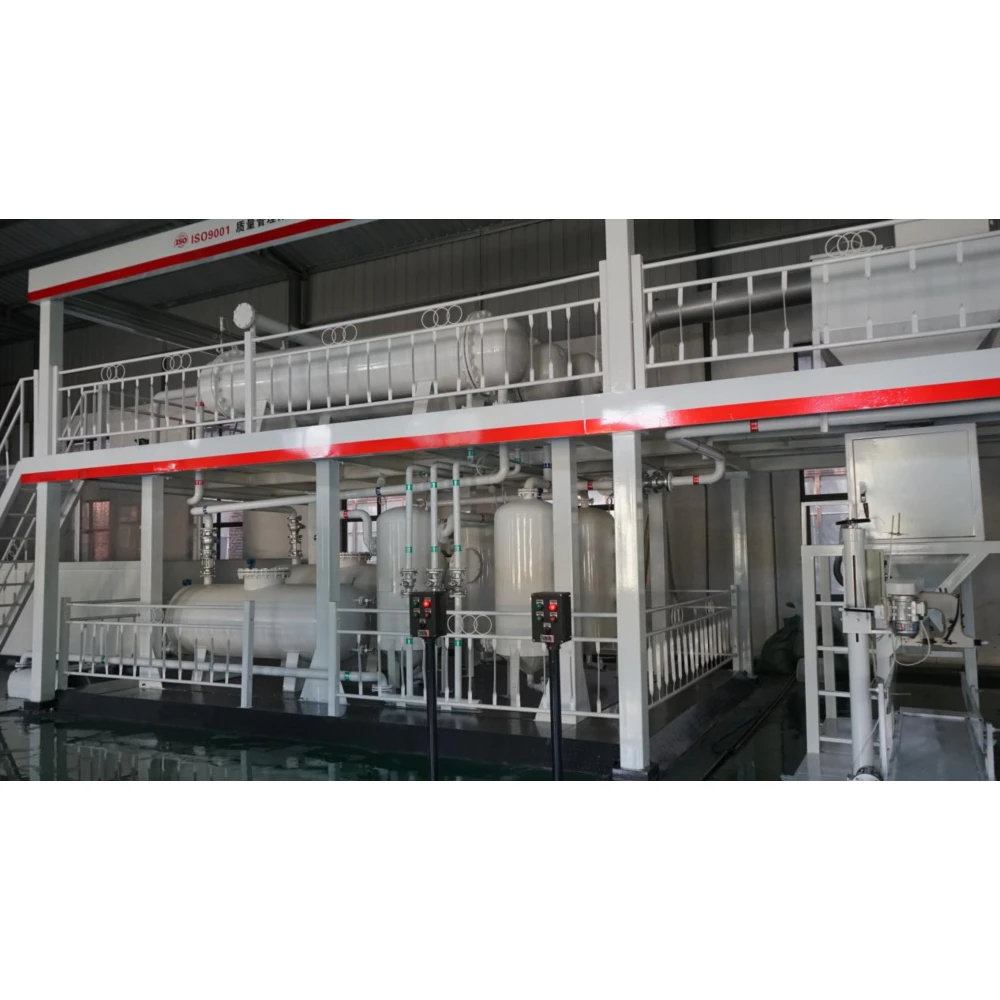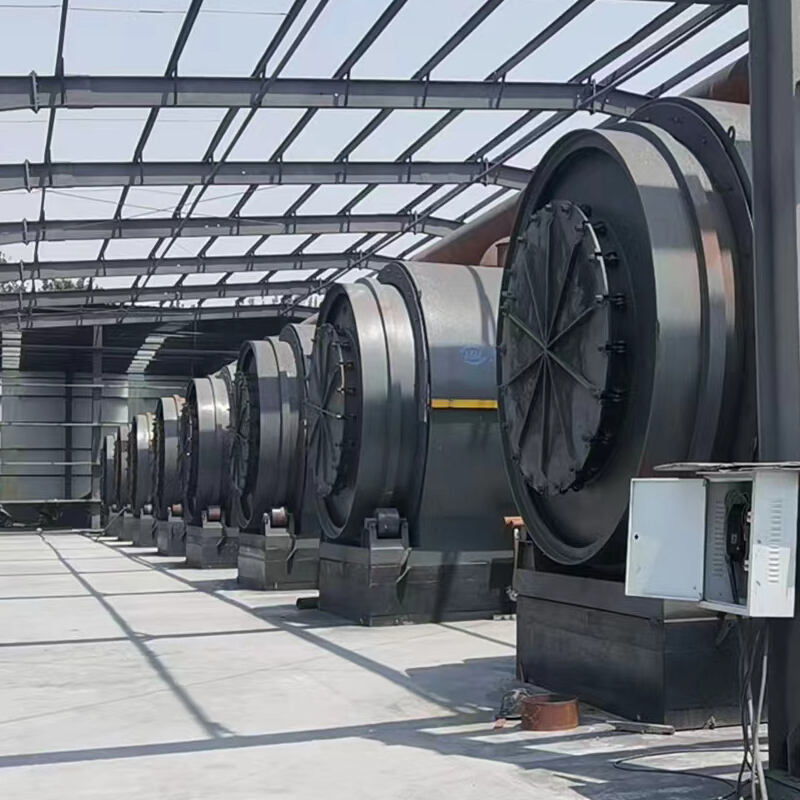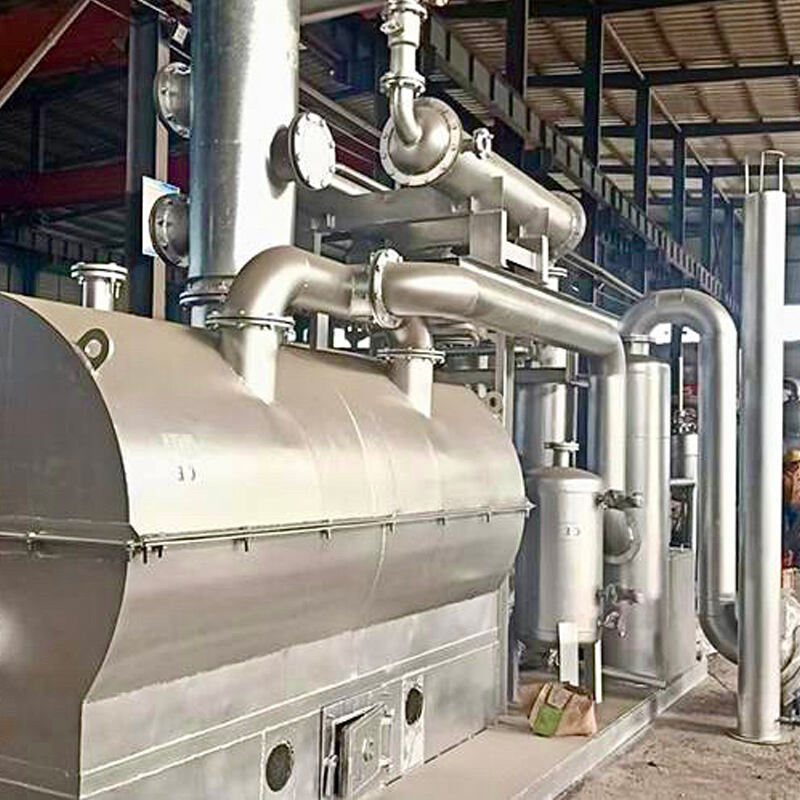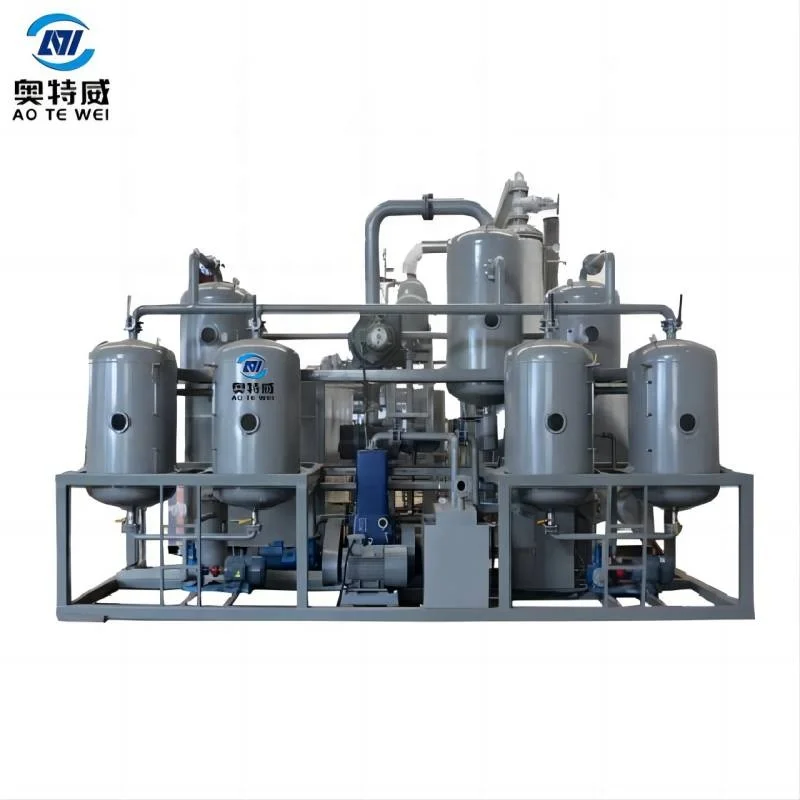Understanding Sustainable Oil Sludge Processing
Oil sludge forms when crude oil mixes with water and all sorts of solid stuff during refining processes. We see this stuff coming out of different parts of the operation too, like when they clean those big storage tanks or run through oil water separators. What makes it so tough to deal with? Well, it's basically a mess of hydrocarbons, water content, plus all kinds of solid particles. Handling this kind of waste properly is absolutely critical because if not managed right, it can really wreak havoc on the environment around processing facilities.
The oil and gas sector deals with a major problem in the form of oil sludge, which can really mess up the environment by getting into soil and polluting water supplies. When companies don't handle this waste properly, they end up facing expensive cleanups later on plus fines from regulators who aren't exactly lenient about environmental violations. Good sludge treatment isn't just important for compliance though it actually helps protect local wildlife habitats and prevents long term damage to ecosystems that might take decades to recover from after being contaminated.
Efficient management of oil sludge matters for business reasons since it cuts down on what companies spend to get rid of waste while getting back materials worth money. When industries process this sludge, they pull out usable oil, put it back into circulation, and cut down on how much waste needs disposing of, which brings down those costly cleanup bills. Beyond just being good for the planet, this method actually makes oil operations more financially sound because businesses recoup resources that would typically end up wasted instead of sitting there doing nothing.
Methods of Sustainable Oil Sludge Processing
When it comes to making oil sludge processing sustainable, mechanical separation is usually where things start. The process separates water and solids from the sludge using various pieces of equipment. Centrifuges and filters are common tools here, working based on how different materials have different weights. Take centrifugation for example it basically spins the sludge really fast so the heavier stuff like solids and water get pulled away from the lighter oil. Filters then pick up what gets left behind after spinning, catching those tiny solid bits that the centrifuge just couldn't grab. Getting these basics right makes all the difference later on. Proper mechanical separation means less oil gets lost during processing and saves money down the line when dealing with what's left after initial treatment.
When dealing with oil sludge, thermal treatments like thermal cracking and incineration remain important options for managing waste while actually producing usable energy. The thermal cracking process works by subjecting sludge to intense heat, which breaks down those heavy hydrocarbons into lighter oils that fetch better prices on the market. For companies facing large volumes of sludge, this can mean significant cost savings. Incineration takes things further still, turning most of the sludge into ash while capturing heat that powers other operations. Some facilities report cutting their waste volume by over 90% through these methods. While there are upfront costs involved, many operators find that the long term benefits in terms of both energy efficiency and reduced disposal fees make these approaches worth considering as part of their overall sustainability strategy in the oil and gas sector.
Besides mechanical and thermal approaches, there's also chemical and biological treatment options when it comes to dealing with oil sludge. With chemical methods, what happens is they add certain substances that basically break apart those stubborn emulsions, which makes it easier to get the oil separated from water and all the solid stuff mixed in. Usually this chemical step comes before any mechanical separation because it just works better that way. Then there are biological treatments where special microbes eat away at the hydrocarbons in the oil. These little organisms take their time breaking down those complicated oil molecules, but they do a pretty good job eventually. What makes these biological methods so great is how green they are. They actually work with nature instead of against it, supporting the natural breakdown process that would happen anyway over years. For companies trying to clean up after oil spills or manage industrial waste, combining these different treatment methods gives a much more complete solution. Not only does this approach cut down on environmental damage, but it also helps recover valuable resources that might otherwise be lost forever.
The Role of Pyrolysis in Sustainable Oil Sludge Processing
Pyrolysis stands out as a key technique for handling oil sludge sustainably, breaking down organic materials into useful products when done without oxygen present. Basically, what happens is that oil sludge gets heated up quite a bit, usually somewhere around 350 to 700 degrees Celsius, causing those complicated organic molecules to break apart into something much simpler. After going through this process, three main things come out: pyrolysis oil, flammable gases, and solid char residue. Each of these has real value for reuse purposes. The oil produced can actually be processed further into various types of fuel, the gases generated often find their way back into powering the reactors themselves, while the leftover char material finds practical uses in construction projects or even helps improve soil quality in certain agricultural settings. What makes this approach so interesting is how it transforms what would otherwise be considered waste into multiple resources that industries can put to good use.
From an economic standpoint, pyrolysis brings real advantages mainly because it cuts down on disposal expenses while generating money from recycled stuff. When companies turn their waste into useful byproducts, they basically set up a money-making loop where nothing goes to waste. The process saves cash compared to regular waste handling methods and creates extra income when selling things like oil, gas, and charcoal. On the green side of things, pyrolysis really shines since it produces fewer greenhouse gases than most alternatives. Unlike burning trash which releases lots of pollutants into the air, pyrolysis plants typically run cleaner operations, especially if they have proper gas cleaning equipment installed. This means less harm to the environment overall while still managing waste effectively.
Product Showcase: Advanced Pyrolysis Plants
The 50 Ton Continuous Automatic Waste Oil Sludge Thermal Cracking Pyrolysis Plant really shines when it comes to getting things done efficiently while processing huge amounts of material. Unlike traditional batch systems, this setup runs continuously throughout the day, making sure waste gets converted systematically without all those stop-start interruptions. The machine's solid construction handles various types of feedstock, capable of processing around 50 tons at once - pretty much what most medium to large facilities need for their daily operations. Many businesses have found that switching to this kind of system improves how they handle waste disposal while recovering valuable resources from what would otherwise be discarded. For companies looking to scale up their recycling efforts, this plant offers both practical benefits and environmental advantages.
The 100kg-30tpd Waste Tire/Plastic/Oil Sludge Pyrolysis Plant stands out among similar equipment because of how flexible it really is. This system handles all sorts of problematic waste stuff like old car tires, plastic waste, and even stubborn oil sludge, turning these materials into useful products that companies can actually sell. What makes this plant particularly interesting is its ability to work across different operation sizes. Some facilities might only need to process around 100kg daily, while others require full capacity at 30 tons per day. The plant adapts well to both scenarios without major modifications. Many industrial players prefer this setup since it helps cut down on landfill waste while still generating decent revenue streams from recycled materials.
These advanced pyrolysis plants embody the future of sustainable industrial practices, providing practical and efficient solutions for environmentally responsible waste processing.
Advantages of Implementing Sustainable Oil Sludge Processing Technologies
Switching to sustainable oil sludge processing tech actually saves money in the long run. Companies spend a fortune on regular waste management, but newer approaches let them turn what was once trash into something useful. Take recovered oil for example it gets cleaned up and put back into circulation, which cuts down on buying fresh supplies while generating extra cash flow. The math adds up when looking at reduced disposal fees plus income from selling these reclaimed materials. Many manufacturers have already seen their bottom lines improve after implementing these greener solutions without sacrificing quality or efficiency.
Sustainable oil sludge processing tech helps businesses stay within those tight environmental rules, which cuts down on possible fines and boosts how the public sees them. Government agencies really crack down when companies break these environmental laws, sometimes hitting them with massive financial penalties. When companies spend money on green processing solutions, they dodge those legal headaches while building up their image as someone who cares about the environment. And let's face it, customers notice this stuff. People want to do business with companies that share their values, so having this kind of reputation often means more trust from clients and opens up partnerships with other eco-minded businesses looking for reliable suppliers.
Future Trends in Sustainable Oil Sludge Processing
New developments in oil sludge processing are coming fast, especially with better pyrolysis methods and improved filtration systems on the horizon. These new approaches should make things work faster and get more material back from the sludge, which means we can manage this waste stuff in a way that's actually good for the environment. Speaking of which, there's also this whole circular economy idea gaining traction. The basic thought is simple enough really - instead of seeing waste as something to throw away, treat it as something useful instead. When applied to oil sludge management, this mindset helps recover all sorts of valuable components that would otherwise go to landfill. Companies adopting these practices not only cut down their environmental footprint but also save money in the long run while contributing to what many hope will be a greener industrial landscape overall.









 Hot News
Hot News